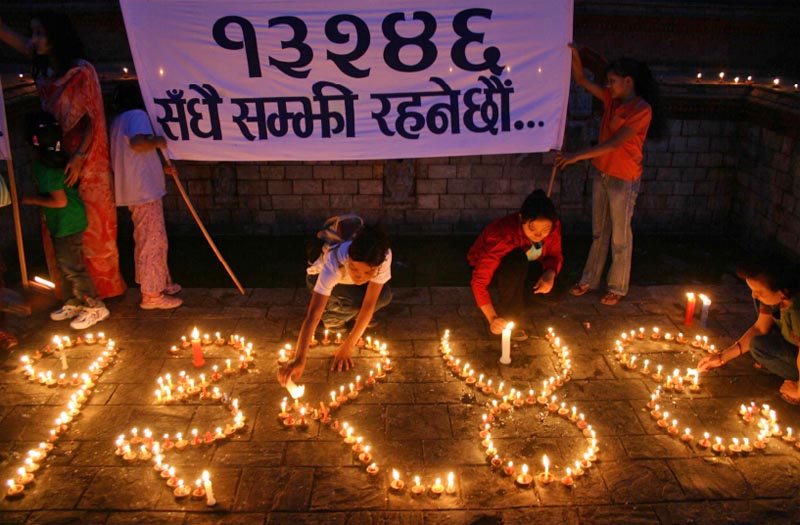Nepal's politicians, army resistant to investigating war crimes
NEW DELHI: Nepali political parties and security forces who are accused of war crimes during the country's decade-long civil war are hampering efforts to bring justice to tens of thousands of victims and their families, a study said on Thursday.
More than 17,000 people were killed and more than 1,300 went missing during the conflict between government forces and Maoist rebels in the Himalayan nation.
The war ended more than 10 years ago but families and victims are still waiting to find out what happened to their loved ones and see those responsible punished.
The study, by the International Center for Transitional Justice (ICTJ), found there was a "widespread misunderstanding" of transitional justice in Nepal, with policy often motivated by the interests of political leaders and the army.
"There continues to be resistance to criminal investigations and prosecutions of conflict-related human rights violations by the main political parties and the security forces," it said.
"Authorities promote, at best, a version of transitional justice that is limited to an ill-defined notion of truth and an emphasis on forms of reconciliation and relief for victims wherein protection of perpetrators is privileged over victims' right to remedy."
Nepal's Law Minister Shankar Nayak told the Thomson Reuters Foundation that the government had no intention of delaying or hampering the issue of accountability for war crimes, but admitted there were setbacks due to political instability.
"We are committed to concluding this in accordance with international standards as early as possible," said Nayak.
"But the country’s fluid political situation, where governments change every nine or 10 months, wrangling between political parties over the constitution making and its implementation, have contributed to the delay in delivering transitional justice."
The conflict ended in 2006 with the government and the Maoists signing a peace agreement.
Seeking justice for killings, disappearances, rapes, arbitrary arrests and torture is a key provision of the agreement, but the process has been slow.
Two commissions were established in 2015 - one to probe enforced disappearances and another to investigate more than 60,000 complaints of violations committed during the war.
But survivors, victims' families and activists believe legislation relating to war crimes must be amended as currently perpetrators can be granted amnesty.
They say politicians - many of which have members accused of war crimes - have no intention to seriously address victims' grievances.
The report recommended Nepali authorities provide adequate state resources to the two commissions, ensure transparency in the truth-seeking process, and reach out to the public and promote reconciliation by building trust.
The government, it said, should issue an official apology to victims for human rights violations experienced at hands of government forces, as well as for the state's failure to protect victims of violations committed by the Maoist rebels.






